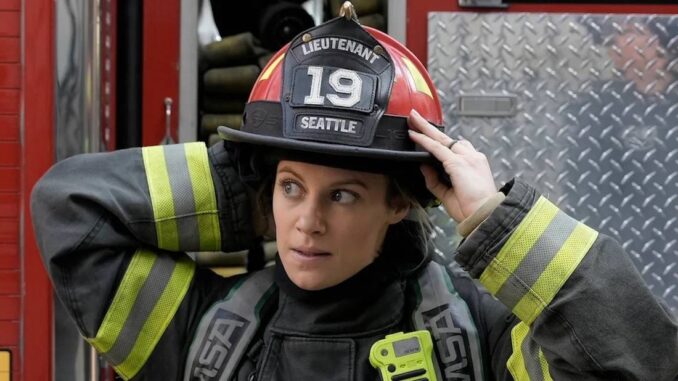
The Echo in the Halls: When a Station 19 Star Speaks of Return
The news rippled through the digital ether like a tremor through the foundations of a beloved building: a former star of Station 19 has spoken out about the possibility of returning to the show. For devoted fans, it was a collective gasp, a surge of hope, and a sudden reawakening of old debates. This seemingly simple statement, however, is far more than mere celebrity gossip; it is a profound illustration of the complex interplay between character, actor, narrative, and the unyielding devotion of an audience.
To understand the weight of such a pronouncement, one must first grasp the depth of investment fans pour into their chosen fictional worlds. Characters, particularly in long-running dramas like Station 19, transcend their fictional boundaries to become quasi-family members. Viewers celebrate their triumphs, mourn their losses, and feel the sting of their departures. When a character leaves, whether through death, relocation, or a narrative choice, it leaves a palpable void. The online forums and social media platforms become digital wakes, lamenting the absence, revisiting favorite scenes, and, crucially, perpetuating the “what if” scenarios. A whisper of a return, then, is not just about a plot point; it is about the potential for reunion, for a beloved face to once again illuminate the screen, and perhaps, to right a perceived narrative wrong. It’s the hope that an unmoored ship might find its way back to port, bringing with it the possibility of untold stories and rekindled relationships.
From the actor's perspective, speaking out on a potential return is a tightrope walk between nostalgia and professional ambition. Leaving a successful show is rarely a simple decision; it often involves the pursuit of new challenges, the desire to shed a well-loved but potentially typecasting role, or simply the natural evolution of a career. Years may pass, new projects undertaken, and artistic horizons broadened. Yet, the gravitational pull of a character that defined a significant chapter of their life, and the passionate fanbase that still cherishes that portrayal, can be immense. Is the statement a genuine longing for a familiar creative space? A strategic nod to an open door for future negotiations? Or simply an acknowledgment of the enduring public interest in a role that continues to resonate? Whatever the underlying motive, it reveals the unique bond actors forge with their characters, a bond that sometimes, like an echo, lingers long after the final scene is shot.
For the showrunners and writers, the prospect of bringing back a departed character is fraught with narrative peril and immense opportunity. A return must serve the story, not just fan service. Was the character's original exit definitive? How has their absence shaped the remaining ensemble? What new conflicts or resolutions would their reappearance introduce? There's the delicate balance of honoring the character's legacy while pushing the ongoing narrative forward. A poorly executed return can cheapen the original departure, disrupt established dynamics, or feel like a desperate grab for ratings. A brilliant one, however, can reignite a show, provide powerful emotional arcs, and deepen the overall tapestry of the series. It’s a challenge of reintegration, like weaving a lost thread back into an already intricate pattern, ensuring it enhances, rather than unravels, the whole.
Ultimately, the Station 19 star's comment is illustrative of the ongoing, dynamic relationship between creators and consumers in the age of pervasive media. It highlights the potent, almost tangible, power of collective longing that can influence creative decisions. It underscores the enduring impact of well-crafted characters who, even in absence, remain vibrant in the imagination of their audience. And it reminds us that while the curtain may fall on a character’s initial arc, the possibility of an encore – whether a fleeting cameo or a full-fledged return – continues to dance tantalizingly on the horizon, fueled by the whispers of an audience that never truly said goodbye. The echo in the halls of fictional firehouses, it seems, can sometimes grow loud enough to summon the past back to life.
